Knowing about the best foods for pregnancy and lactation is something expectant and new mothers want to be aware of. What you eat makes a big difference in how you feel physically and emotionally while pregnant or breastfeeding. Your diet also directly affects the health of your baby.
Vegetarian and vegan women are usually extra careful to ensure they're getting the nutrients they need for themselves and their babies to thrive.
I experienced a major difference between my two pregnancies. During my first pregnancy, I frequently ate out because I did not feel like cooking. Though fresh fruit, vegetables, and whole grains made up a large part of my diet, I didn't pay attention to protein and fat.
Consequently, my blood sugar levels were unstable, causing me to be forgetful, lightheaded, moody, and tired. I was consistently underweight in my pregnancy and I went into labor six weeks early. Fortunately, my baby and I were fine.
Helpful books recommended by VegKitchen:
- The Vegetarian Mother's Cookbook* by Cathe Olson (review)
- Everything Vegan Pregnancy Book* by Reed Mangels, RD, PhD (review)
My second pregnancy was much better. I rarely dined out. (I did have a toddler, after all.) I studied books on pregnancy nutrition and came up with a good eating plan. I regularly ate concentrated protein foods like tempeh, tofu, beans, legumes, nuts, seeds, and homemade yogurt. I also ate a lot of dark green leafy vegetables, whole grains, and cultured foods.
I thrived during this pregnancy. My weight gain was always right at the recommended levels. I had energy; I was clearheaded; and I felt good. I kept a food log that my midwife reviewed at every prenatal appointment. She was so impressed that she passed the log on to her other vegetarian clients to give them ideas for nourishing meals.
My second daughter was born close to her due date. There was some stress on the baby during the birth because of a minor complication, so when my daughter emerged she was slightly blue, but within seconds she returned to normal color. My midwife said my baby was able to recover so quickly because she was well nourished. Following are foods that I found especially beneficial during pregnancy and lactation.
Beans and Legumes
Beans and legumes are good sources of protein, fiber, calcium, iron, thiamin, and niacin. They are a crucial part of a vegetarian diet. Make a big batch of beans when you have time and freeze them in small containers. Canned beans are available also. They are just slightly lower in nutrients than home cooked due to the high heat processing. Canned beans usually contain high amounts of sodium, however. Draining and rinsing away the canning liquid will remove a lot of the sodium.
Soybeans provide more protein than any other bean or legume, making them a staple of many vegetarian diets. Soybeans are rich in many nutrients, including calcium and iron. Fermented soy products like tempeh or miso are especially beneficial because they contain healthy bacteria and enzymes that aid digestion, and the phytic acid is neutralized by the culturing process.
Avoid fabricated soy foods (e.g., fake meats, protein powders) made with soy protein isolates or textured vegetable protein, which are created using a highly chemical process and usually have MSG or artificial flavors added. Also, keep in mind that although soy is a great protein source, it is not the only one. Moderation and variety are important in a vegetarian diet and you shouldn’t rely on any one food for nutrients.
Whole Grains
Whole grains like brown rice, quinoa, millet, and oats supply fiber, minerals, B complex vitamins, and protein. Buy the least processed grain types you can find. Many commercially prepared grains have the germ and bran removed to increase shelf life and shorten preparation time. Even if they are “enriched,” this does not replace the nutrition that was lost in the processing.
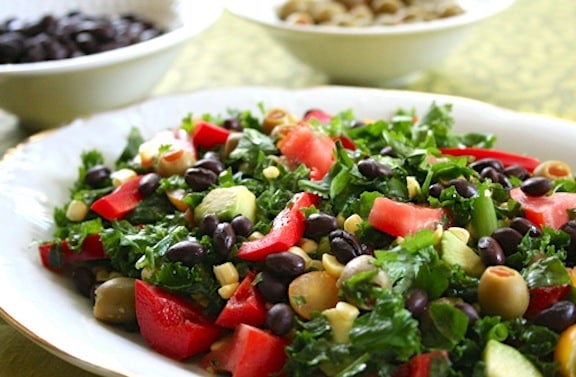
Dark Green Leafy Vegetables and Cabbage Family Vegetables
Dark green leafy vegetables (kale, collard greens, watercress, etc.) are especially important while pregnant or lactating because they supply so many vitamins and minerals, including vitamins A and C, calcium, and iron. Dark leafy green vegetables also are rich in phytochemicals like beta carotein and lutein which protect against many forms of cancer. Vegetables from the cabbage family (broccoli, brussels sprouts, cabbage, etc.) are exceptional sources of vitamin A, vitamin C, and calcium. They are also rich in phytochemicals that have anticancer properties.
Dark green leafy vegetables and cabbage family vegetables provide important nutrients that help to promote a plentiful milk supply for your baby. Buy fresh, organic vegetables whenever possible and eat at least one serving every day.
Cultured and Fermented Foods
Cultured and fermented foods include natural, unpasteurized miso, naturally fermented vegetable pickles and sauerkraut, yogurt, and Rejuvelac. Never boil these foods as high temperatures will destroy the beneficial bacteria.
Blackstrap Molasses
Blackstrap molasses contains high amounts of calcium and iron, plus magnesium, potassium, copper, and chromium. Buy organic, unsulphured molasses and use it to sweeten porridge, smoothies, and baked goods.
Nutritional Yeast
Nutritional yeast is an exceptional source of almost all B complex vitamins as well as being high in protein. Look for nutritional yeast flakes enriched with vitamin B12 like Red Star(R) Vegetarian Support Formula. Nutritional yeast flakes can be added to soups, sauces, tofu scrambles, cereals, smoothies, and other foods.
Nuts and Seeds
Nuts and seeds are good sources of fiber, protein, minerals, and essential fatty acids. Be sure to eat flaxseeds, chia seeds, pumpkin seeds, and/or walnuts to get omega-3 fatty acids, which are important for baby’s brain and nervous system development as well as your own health.
Nuts and seeds can be eaten raw or toasted. Small seeds like sesame and flax must be ground in a coffee grinder, seed grinder, or blender in order for nutrients to be utilized. Nut and seed butters are delicious on crackers or toast or used as a dip or sauce.
Allergies to peanut products affect approximately 1% of the U.S. population. Although there hasn’t been extensive research on fetal sensitization, recent studies suggest that when a pregnant woman consumes peanut products, the fetus may be exposed to peanut allergens. If there is a predisposition to allergies, the infant could develop a peanut allergy. Therefore, parents with food allergies and/or family histories of nut allergies may want to avoid peanuts while pregnant or breastfeeding. Almond butter, cashew butter, pumpkin seed butter, or tahini (sesame seed butter) can replace peanut butter in sandwiches and recipes.
The baby you are nurturing is truly an incredible gift, and the experience of giving birth is something you will always remember and cherish. Eating plenty of these common plant-based super foods for pregnancy and lactation will help you to feel strong and vibrant so you will be able to make the most of this special time.
Cathe Olson is the author ofSimply Natural Baby Food , The Vegetarian Mother’s Cookbook,* and Lick It! Cream,* Dreamy Vegan Ice Creams Your Mouth Will Love.*
- See also 6 Superfoods to Promote a Healthy Pregnancy
- For more tips on plant-based nutrition, make sure to browse VegKitchen’s Nutrition page.
- For lots more features on healthy lifestyle, please explore VegKitchen’s Healthy Vegan Kitchen page.
---
*This post contains affiliate links. If the product is purchased by linking through this review, VegKitchen receives a modest commission, which helps maintain our site and helps it to continue growing!


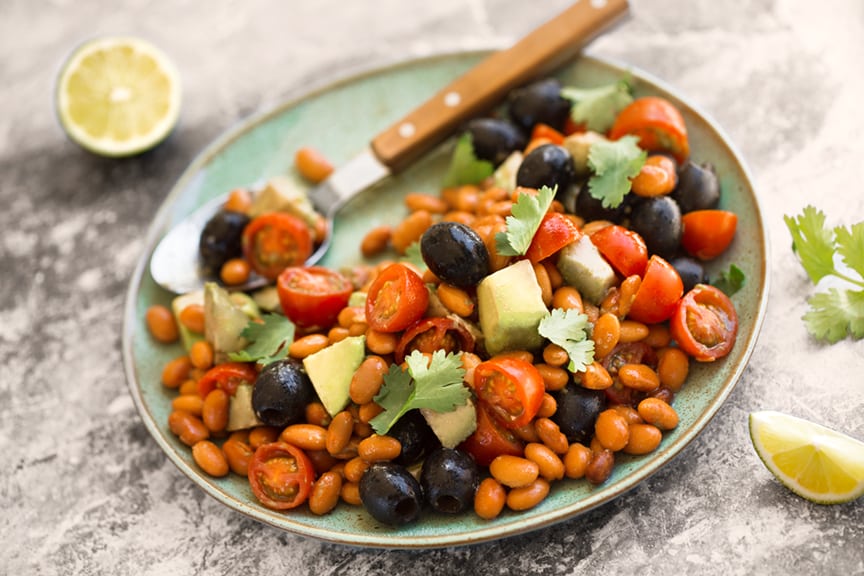
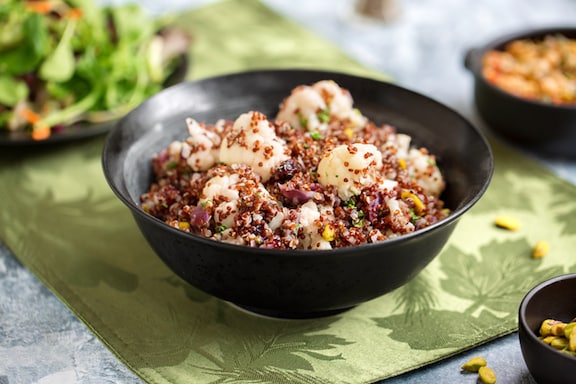
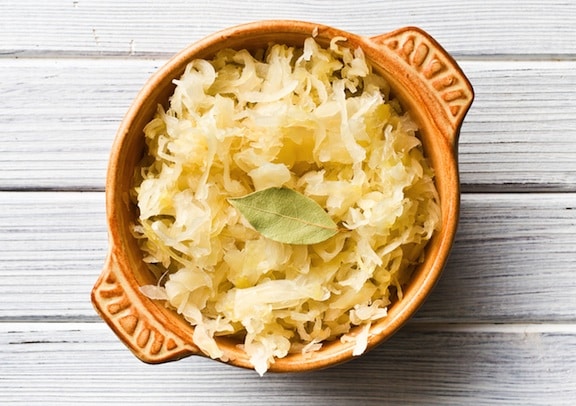
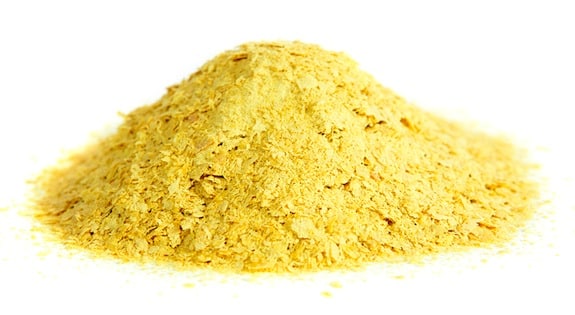
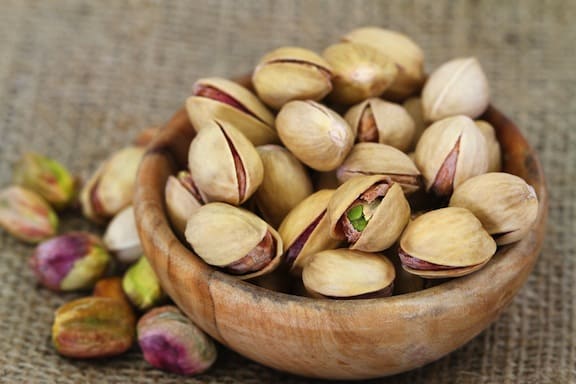

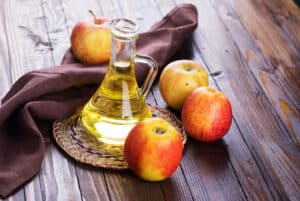
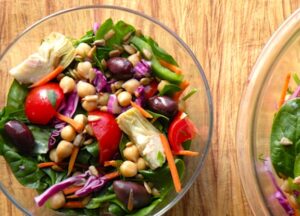
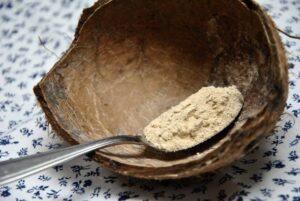
Rebecca says
This article is a huge help. It provides all the basics in a clear-cut way. I am so thrilled to have found it - I am ordering your books right now!!! I have been consuming too much soy and have begun spotting during my 6th week so I am hoping it's not too late to change my diet. Thanks for sharing.
Nava says
Rebecca, I'm thrilled that Cathe's article is such a help to you. Her books are wonderful, too, and you won't be disappointed.
Cheryl says
Yes Cathe's books are awesome in that they provide nutritional information as well as substitution options for other grains. I did not have her book during my 2 pregnancies but am so glad I do now. It has improved my overall health and well being for sure Ü
Mary Ellen Bowen says
This pocket guide for Vegan Pregnancy gives readers quick answers to their most pressing pregnancy problems—from straight-forward nutrition information and strategies for maximizing meal plans, to tips on choosing cruelty-free antacids (by brand name) and advice on how to throw a vegan baby shower. Written in an upbeat and casual tone, reading the Vegan Pregnancy Survival Guide is like having an awesome conversation with a super-supportive and super-positive girlfriend—who happens to know a ton about vegan nutrition and pregnancy. Write [email protected] for more info on the Vegan Pregnancy Survival Guide!
Mary Leon says
Nice post
A mother's diet is the most significant factor that defines the healthy growth of an unborn baby. We all have heard and known a lot about the importance of a balanced diet during pregnancy, and its positive effects on the baby.
Read more at Buzzle: http://pregnancy.diseasexconditions.com/high-protein-pregnancy-foods/
Claudine says
Do you still have the log of foods you ate during your second pregnancy, and if so would you post the list? I think this would be treasured by vegetarian/vegan pregnant women trying to be healthy. I am actually due in a few days, but having a menu/specific examples for a nearly-nursing mom would make my life oodles simpler.
Thank you!
Tiffany says
Excellent suggestions! I wish I would have found this sooner! With only 6 weeks to go I'm surely going to add these foods in my diet now.
Thank you!
Nava says
Good luck with the rest of your pregnancy! Thanks for your comment.
Maria says
Pregnancy is a phenomenal yet normal physiological process that comes with some unique nutritional requirements. What you eat throughout your pregnancy really does matter, as you are eating not only to provide optimal nutrition for your baby-to-be, but also to support your increased metabolism, and organ growth. Not only are you what you eat, but so is your baby. And what better reason than that for eating incredibly well!
lisa querido says
I would also love to see a copy of the nutritional log she kept during her second pregnancy. Thanks!
Natalie says
I would really value a look at your nutritional log if you still have a copy. I'm struggling with diet at 9 weeks into my first pregnancy and with no other vegetarian/vegan friends advise is scarce. Thank you.
cheeky says
hi - I'm studying nutrition. Will you do me a favor; please send me which green leafy vegetable have omega fatty acids and specify the name of that green leafy vegetable. It will help my project.
Nava says
The green leafy vegetables — spinach, kale, collards, etc. — all have some omega 3 fatty acids. They aren't rich sources like some nuts and seeds, but supply a modest amount. Hope that helps!
asca says
great article, very helpful... http://howtopregnanteasy.wordpress.com/
Antony says
Broccoli and kale is good during pregnancy, it is source of iron and any nutrition that need by moms and baby 🙂
Thomas Anderson says
We should take very good care during pregnancy and therefore we used to take proper diet and nutrition. Nutrition includes vitamins, minerals, protein and many other things. So during pregnancy a mother need different types of super foods to boost her health system and fortunately here in this above article we have found different types of super foods especially for pregnant women.
Mason Cox says
During pregnancy we need proper care in order to avoid any problems. Therefore medical experts or diet experts are always suggesting good amount of diet plan for pregnant women that includes proper nutrition, vitamin, minerals and other substances. Super foods are also essential during pregnancy it helps to boost energy and metabolism system also helps in digestion. Therefore super foods are quite essential for pregnant women.
Syd says
I am expecting my first child by October and I am preparing for it. I have read a lot of tips and this one is one of the most helpful. Thanks for this! I know now what to eat.
Michelle says
I am on my first trimester now and I have thought of increasing my healthy food intake. This is a very helpful list of foods I should eat, besides they are superfoods. No more reasons not to have them. Thank you for this article!
indira says
Very nice information for thoe who know very little and also very good recipes
Natasha Wilton says
I Like beans,Nuts and all kind of vegetable,Nice to see all of the great foods you mentioned.
Pregnancy Breakfast says
I will definitely order this book! Thank for the information, It's a big help.
Lukas says
There are many more of vegetable proteins sources. Im not vegan but I prefer veggie meals.. I eat meat just about 2 x per week. http://www.blendea.com/high-protein-superfoods/
GOPAL RAWAT says
Very nice